MINERALOGY
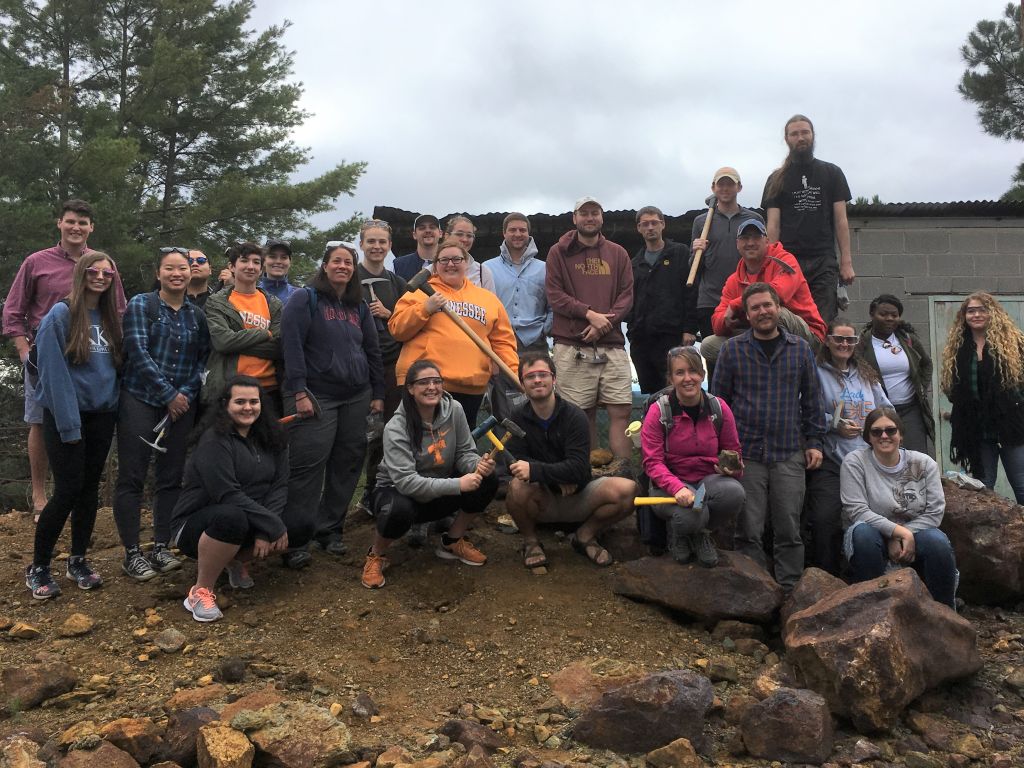
The 2018 class on a tailings pile at the Ducktown Basin Museum, Ducktown TN.
My mineralogy course emphasizes development of critical thinking, research, writing and oral communication skills, and a foundation of knowledge that helps students succeed in the department curriculum and beyond. We cover the following subjects in detail:
-atomic structure and bonding
-crystallography
-crystal chemistry
-optical mineralogy
-structural groups; emphasis on rock-forming minerals
-phase diagrams
-analytical methods in mineralogy
-mineral resources and global conflict
Laboratory exercises focus on mineral identification in hand sample and microscope. We recently purchased all new thin sections that significantly improved the learning experience.
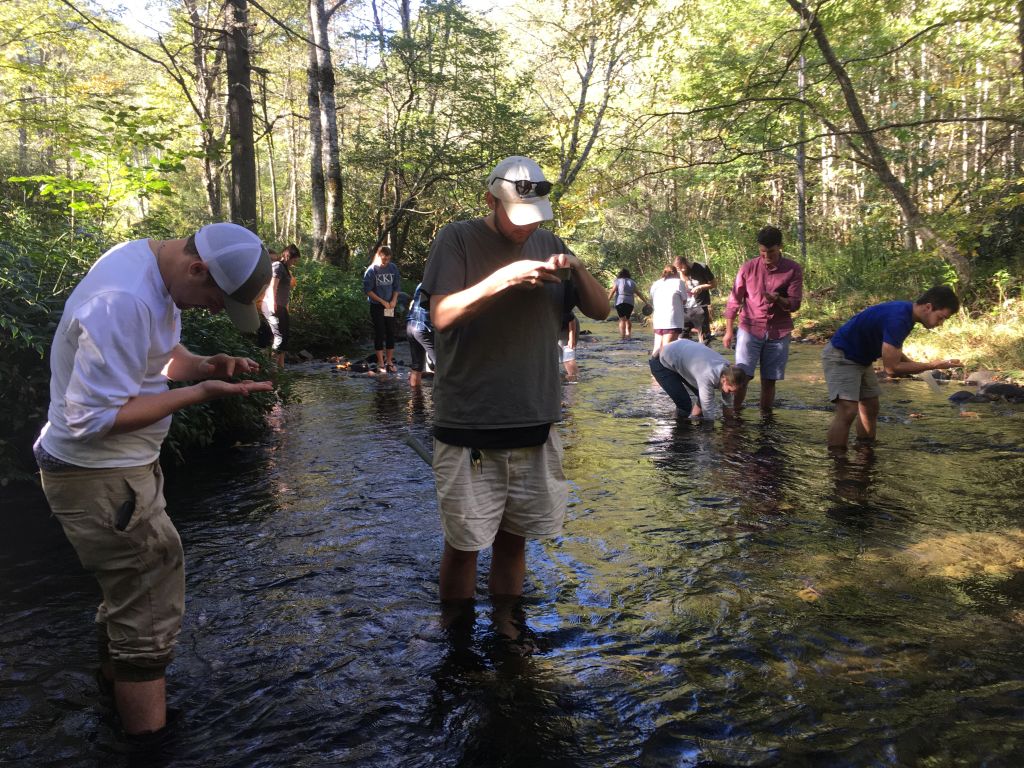
A big hit with students is a field trip to a local ultramafic body and historical copper mining district. Here students hunt for gem-quality corundum in Buck Creek (NC).
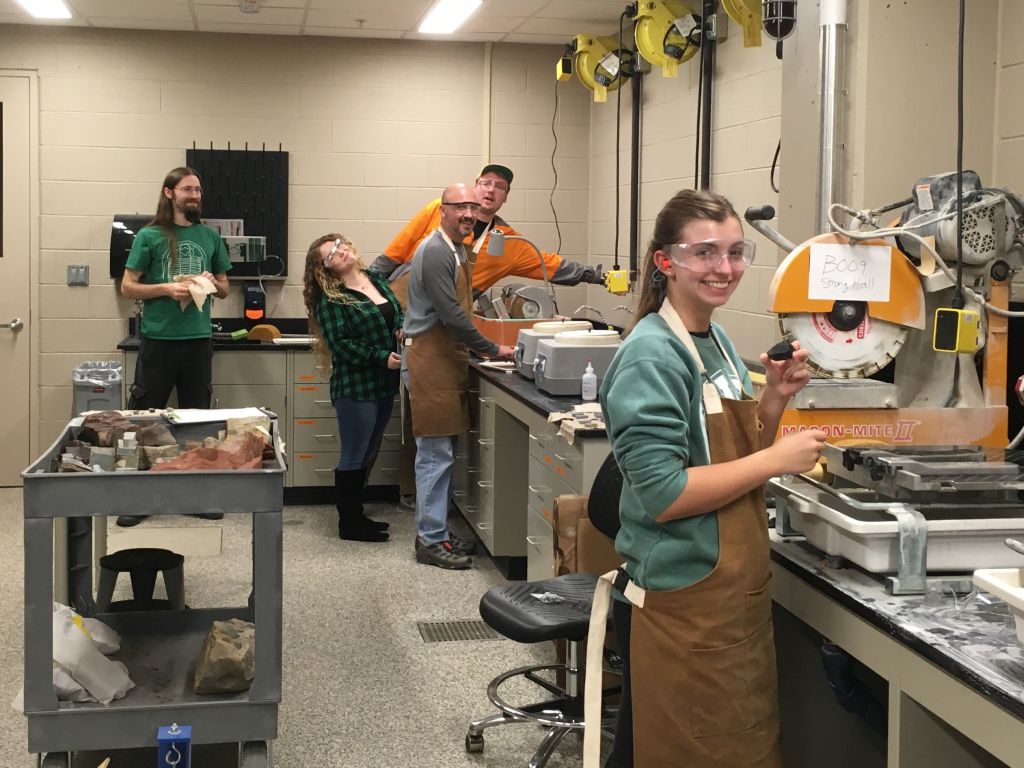
Many students choose to make thin sections from samples they collect on the field trip. These can be developed into the final project.
KINETICS
In this hybrid lecture-seminar course, students gain fundamental background in thermal and chemical diffusion, and develop their own MATLAB-based codes that can be used to study many kinetic problems. In 2023, we covered the following topics:
-Crystal defects and Kröger-Vink notation
-Experimental approaches to measuring diffusivities, Arrhenius relations
-Application of diffusive lengthscales and timescales
-The concept of closure temperature, and closure temperature modeling
-Heat conduction in planetary interiors
-Crystal size distributions
-Applications of analytical and numerical solutions to the diffusion equation to geoscience problems
GEOCHEMICAL MODELING
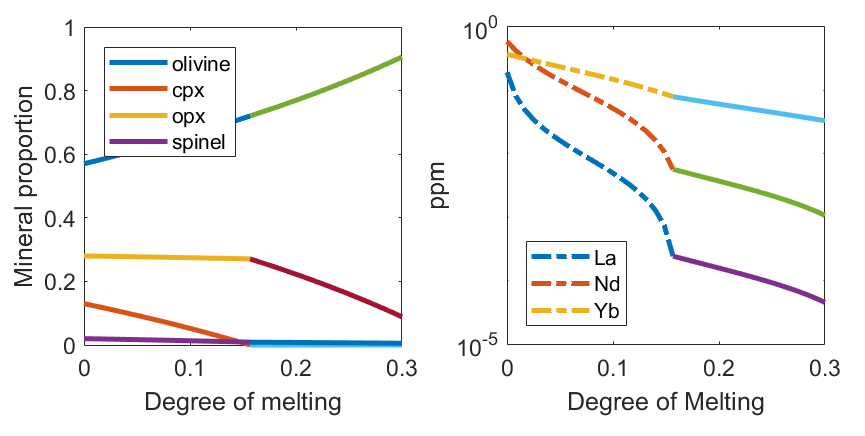
Non-modal batch melting past clinopyroxene exhaustion. Mineral modes (left) and trace element abundances in the melting residue (right).
Students develop the ability to interpret and model variations in trace element abundances in igneous rocks. They produce a valuable suite of MATLAB-based tools that can be applied in real research. Throughout the course relevant literature is read and discussed so that the assumptions underlying the models are understood. The following topics are emphasized:
-MATLAB fundamentals
-Good practices in coding
-Nucleosynthesis and the distribution of elements in the solar system
-Trace element partitioning; subsolidus reequilibration
-Modal and non-modal batch and fractional melting
-The physics of melting and melt transport beneath mid-ocean ridges
-Solidification of magma bodies (e.g. magma oceans)
SCIENTIFIC PRESENTATIONS
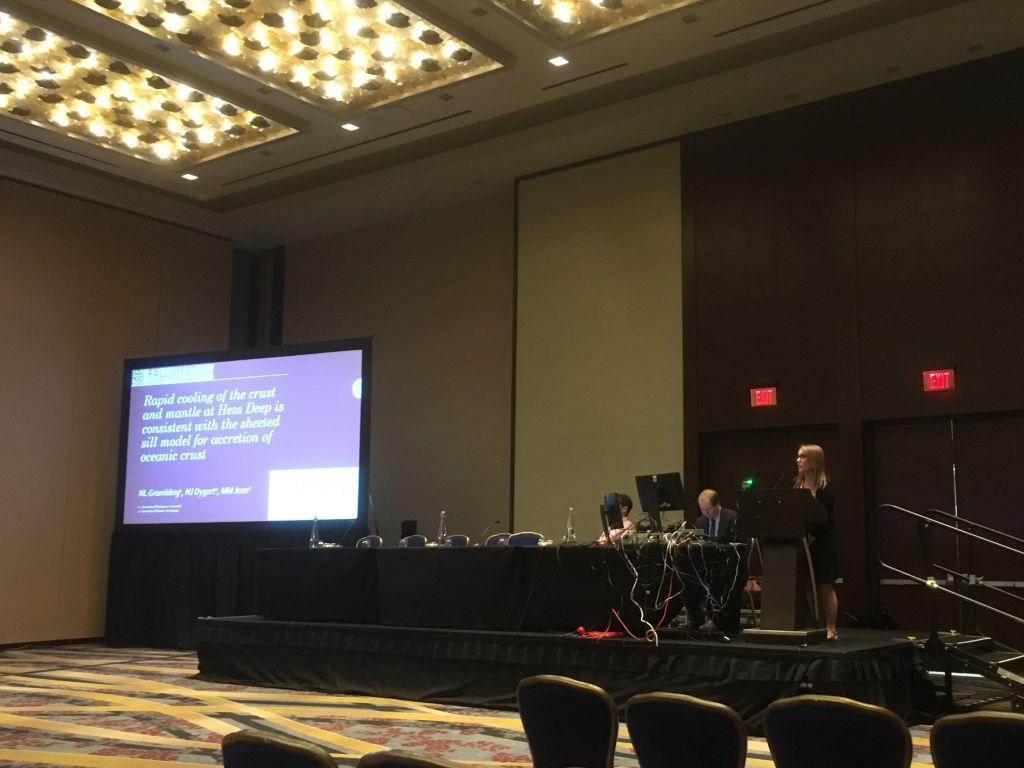
PhD student Nadine Grambling presents her research on the thermal history of oceanic lithosphere at Hess Deep at the 2018 AGU meeting in Washington DC.
This course provides a formal opportunity to create, present, receive critique, revise, and redeliver a professional science talk. Each student selects a geological topic and presents an AGU- or GSA-style talk on the topic to the class, leaving time for review. Based on peer and instructor feedback the student revises the talk and then delivers it to the geology department. Throughout the semester students reflect on department seminars to build awareness of effective presentation methods and develop a personal toolbox of presentation skills. Students are encouraged to use evidence-based methods for effective presentations (e.g., the Assertion-Evidence Approach).
EXPLORING THE PLANETS
This large introductory planetary geoscience course focuses on the physical processes that formed and modify Solar System objects including planetary precursor materials, asteroids, the inner and outer planets, and Earth. Hands-on labs reinforce and are synchronized with the lecture. Major concepts and course units include:
-Nebular hypothesis
-The scale of the Solar System
-Planetary accretion and differentiation
-Radioactive decay
-Geologic and absolute time
-Planetary volcanism
-Planetary tectonics
-Impact cratering
-Fluvial processes
-Space exploration: historical and future